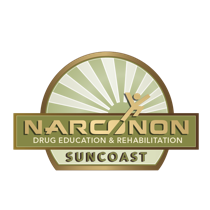Helpful Tips to Support Your Loved One After Leaving Treatment

Helping your loved one stay on the path of sobriety post-rehab or in early recovery can be a challenge for everyone involved, but it is important to keep in mind that being supportive is vital to their progress. Once an addict gets out of rehab or is simply in early recovery, they are prone to feeling overwhelmed by relationships, work, finances, etc., while they navigate their new life without the crutch of an addiction. It is normal to feel overwhelmed in an unfamiliar and new situation, and if someone was reliant on abusing substances to get themselves through the day prior to going to treatment, they are likely to feel some level of discomfort now that they are out and facing everyday life drug-free. Someone newly sober is somewhat vulnerable and going through an enormous amount of change while implementing their new and sober way of life.
The first few months may be more difficult as they are now experiencing the struggles of daily living with a varied outlook and mode of operation than they used before. We process life differently when sober, and this is something that can take some time for someone in early sobriety to get accustomed to. As their parent, relative, or spouse, you could be the emotional rock and a part of their support system that they require to get through the days, weeks, and then months of early sobriety. It is never too late for an addict to turn their whole life around, but having a stable support system can make a world of difference during a time that could otherwise feel unstable.
It is important to encourage your loved one to keep busy and involve themselves in constructive activities. As the person in their early stages of recovery forms healthy and fun hobbies, they can more easily let go of the past and deal with the future in a productive way. By filling up their time with career goals, hobbies and personal goals that are conducive to their well-being, it is a lot less likely they would relapse or fall back into the old, toxic patterns of addiction. Crowding out their past with new and creative hobbies and activities is an effective way to move forward in their life. As a supportive element during this process, you would do best to encourage them to tackle their goals, whether big or small, that they could not get around to or reach while they were abusing drugs or alcohol.
Physical exercise is one example of a healthy activity to encourage your loved one to get involved in due to both the mental and physical benefits of exercise. Whether it is weightlifting, walking, running, or any other type of cardio, it is a great way for someone to keep a good routine while they are continuing to progress in their recovery. Staying productive is usually one of the main positive changes that someone needs to keep themselves on track and focusing on their sobriety.
Staying on track can sometimes be harder than it looks, and while the person in early recovery might seem to get by just fine, you never know what their internal battle looks like. Making sure that you keep an open flow of communication between you and your loved one is key in establishing a safe environment for them to reach out should they encounter any type of struggle. Checking in with your loved one at least once a day is a good way to lend support and make them feel cared for daily. It is also a good reminder that they are still held accountable by the people in their life that care about them.
It should go without saying that if your loved one is living with you, then it should be a priority to organize the house and the lifestyle of those residing in it to be completely free from drugs or alcohol. It is also a good idea to encourage your loved one to continue to nurture the relationships with the supportive people in their life and not fall into any bad crowds or old environments that may trigger them. Encouragement can go a long way in helping your loved one keep a positive mindset and keep their eye on the ball to continue their drug-free life.
By Danielle P. Narconon Suncoast Graduate and
Contributor
